News from ProDentures
Your Source for Affordable Partial & New Dentures in Houston, Texas

One of the most common misconceptions regarding teeth is that it’s natural to lose them as you age. In truth, tooth loss or edentulism is almost always directly caused by gum disease or trauma. Natural teeth, when cared for properly, can last a lifetime even as your mouth changes as you grow older. Few people know this, which is precisely why many elderly patients tend to just ignore the problem until it starts to affect their day to day lives. However, beyond difficulty in speaking or eating, chronic headaches, jaw pain and altered facial and bone structure, studies show that losing teeth also has a significant impact on mental health.
Dental Health Linked to Mental Health
In a study published in the Journal of the American Geriatrics Society, lead author Georgios Tsakos stated that tooth loss is an early marker of mental and physical decline in people aged 60-74. In a study involving 3,166 adults over the age of 60, researchers concluded that participants who had complete edentulism performed about 10 percent worse in memory and walking speed tests.
Another research published in the Journal of Alzheimer’s also reveals that older people with poor oral health or gum disease may be at greater risk of developing dementia. Bacteria from inflamed gums can enter the bloodstream through everyday activities such as eating, chewing and toothbrushing. Bacteria in the blood can then be carried to other parts of the body, including the brain. Once it reaches the brain, it may trigger an immune system response that kills brain cells and changes the brain. It could then cause symptoms such as confusion and deteriorating memory, which is typical in Alzheimer’s disease.
Meanwhile, other studies have also shown that people with dental problems are also likely to develop other mental health issues like anxiety disorder and depression. Having missing teeth causes people to have low self-esteem, which in turn leads to depression and self-neglect. Over time, as their dental health declines, their mental health suffers as well.
How Dental Implants Can Help You
Dental implants are just one of the most effective solutions to tooth loss in Houston because it is a permanent replacement. It is fused directly to the bone in a way that mimics natural tooth root, giving you a smile that feels and looks natural. It requires a relatively low-maintenance hygiene routine, doesn’t cause gum pain, and maintains the health of your jawbone. More importantly, it helps you avoid developing mental health issues from living with missing teeth.
Unsure whether getting dental implants is the right option for you? Visit your dentist and find out if you would make a good candidate for the procedure and learn of other treatments available to you.
Sources:
Study: Tooth Loss Linked To Slowing Mind And Body, Colgate.com
How Dental Health Relates to Physical and Mental Health, GettingHealthier.com
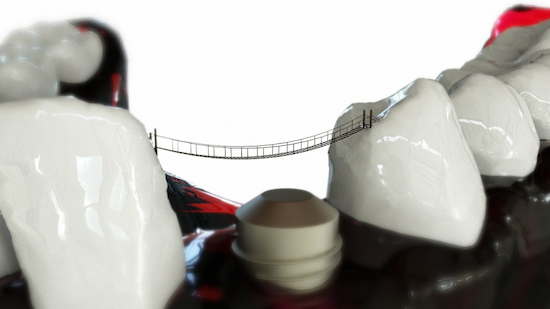
Most children are born with 32 teeth. Most of us recall what it was like to lose one of baby teeth and still try to eat. But once our “adult teeth” have grown in losing one more teeth can have a serious effect on your life. You may have difficulty eating your favorite foods or speak as fluently again. In this case you may consider having dental implants installed.
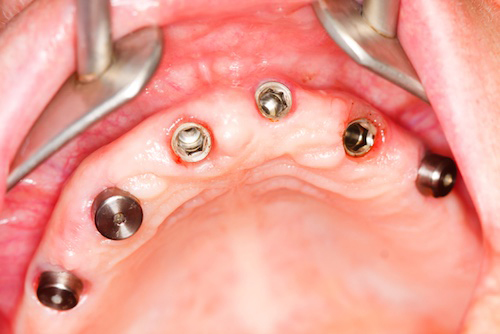
Edentulism or tooth loss, a common problem in patients aged 65 and above, has a much larger impact than one might think.
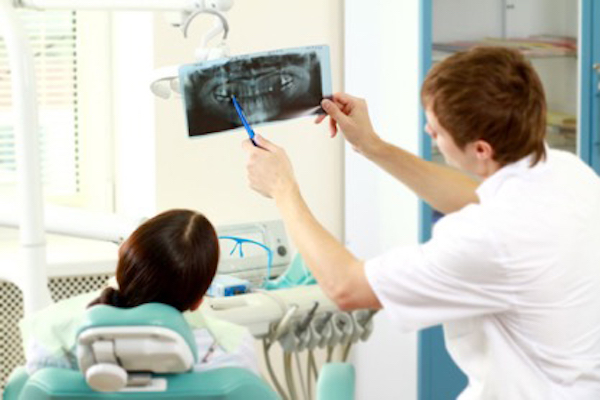
If you have a missing tooth or two, a dental implant procedure from a reputable Houston dentist may be the best option for you. After all, dental implants are renowned for being able to look, function, and feel just like natural teeth.
Furthermore, dental implants are known to help prevent bone loss along the jaw, helping you avoid “sunken cheeks” and wrinkles.
Considering how effective dental implants are as replacement teeth, it’s only natural that you want the procedure to go as smoothly.
In general, dental implant procedures have a very high success rate, but there are definitely several steps you should take prior to getting dental implants at a trusted elder dental practice like ProDentures.
Some of these steps include:
Now is a Great Time to Quit Drinking or Smoking
During the weeks leading up to the procedure is a great time to quit smoking. Cigarettes are known to inhibit the production of white blood cells, which may increase the risk of the site of the procedure becoming infected.
On the other hand, alcohol consumption diminishes the body’s ability to properly heal itself. This means it may take longer for the area surround the implant to properly close and heal. It is best to avoid drinking alcohol in any amount a week before and a week after getting dental implants.
Maintain Proper Oral Hygiene
Oral health plays a large role in determining whether you may proceed with dental implants or not. If you have already been cleared for the procedure, make sure you keep up with proper oral hygiene.
Three weeks is more than enough time for gum issues to arise, which can easily push back the date of the procedure or even cause an infection later on. Remember to brush your teeth and floss before every meal. In addition, rinsing twice a day with mouthwash will help keep your mouth free of dangerous bacteria.
List Any and All Medication that You are Currently Taking
It is common for people to be taking medication or supplements these days. Take note, however, that you may need to stop taking certain medication in the days leading up to dental implant surgery.
Be sure to inform your dentist about any and all medication and/or supplements (both prescription and over the counter) you may be taking. Some medication may lead to conflicts or complications.
An experienced dental implant dentist should be able to identify which ones you need to hold off taking and which ones you can continue to take.
Discuss Sedation Options with Your Dentist
Lastly, take the time to discuss sedation options with your dentist beforehand.
In most cases, dental implant surgery only requires the use of local anesthesia. However, people who suffer from dental anxiety may prefer to be put under general anesthesia.
Do not hesitate to discuss this with your dentist to ensure the procedure itself goes well and that you are comfortable with the sedation method used.
Now that you know the steps to take prior to a dental implant procedure, make sure to carry out all the aforementioned steps as they can define the success of your procedure.
With the guidance of an experienced dental implant dentist like Dr. Paul Searby or Dr. Ron Evans at ProDentures, you’ll have a better chance at restoring your oral health and maintaining a beautiful smile.
Sources:
Dental Implants, WebMD.com
Who Is An Implant Candidate?, Colgate.com
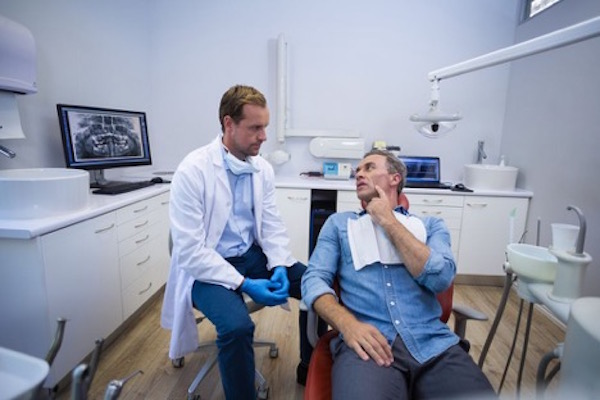
Over the last few years, more and more people are opting to get dental implants as a way to address the problem of missing teeth—and it’s not terribly difficult to see why. Dental implants look, function, and feel just like natural teeth.
If you are scheduled for dental implant surgery, it’s only natural to want to make sure the procedure goes smoothly. Fortunately, there are several steps you can take to better prepare you for dental implants. With that in mind, be sure to follow these tips:
Quit Smoking
Need another reason to finally quit smoking? Your upcoming procedure may be that extra push you need to break the habit for good.
Cigarette smoke is known to inhibit the body’s natural ability to heal itself, which may prolong your recovery period. Additionally, the tar left behind by cigarettes could lead to an infection at the implant site. It’s best to quit smoking for a few weeks prior to getting dental implants.
Inform Your Dentist of All Medication
Are you taking medication for any medical condition?
If so, it’s best to let your dentist know what you’re taking before committing to dental implants. This is because certain medication may interfere with the compatibility of the implant and your jawbone.
Some medication may also inhibit your body’s ability to heal itself as well and bog down your recovery. Your dentist may ask you to stop taking certain medication prior to the procedure, but be sure to consult with your physician first.
Prepare What You Will Need at Home After the Procedure
After the procedure, you’ll probably need to rest at home for a few days before heading back to work. Unfortunately, this means that you may be unable to leave your home to pick up any items you need.
With this in mind, prepare what you’ll need for the next few days ahead of time. For example, you may want to stock up on soft foods and soups for you to eat while recovering from the procedure. Cleaning clutter from the floor also makes it easier for you to move around and prevents you from exerting too much energy unnecessarily.
Arrange for Someone to Bring You Home
Getting dental implants may be an outpatient procedure, but that does not necessarily mean that you’ll be able to go home by yourself. Many patients still feel the effects of the anesthesia several hours after the procedure wraps up.
As such, you may be in no condition to drive so it’s best to ask a close friend or a family member to drive you home after and help you get into bed after getting dental implants.
Sources:
Who Is An Implant Candidate?, colgate.com
Dental Implants, webmd.com
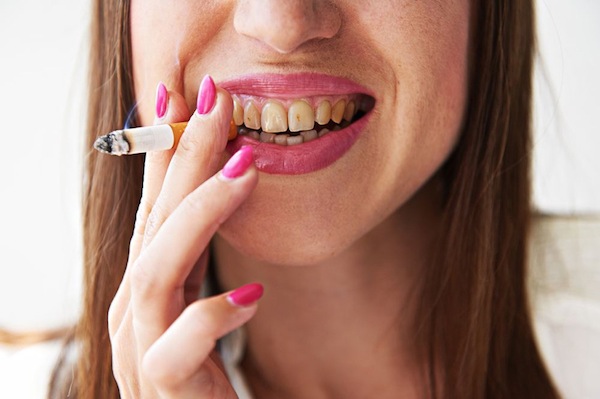
Smoking can do more damage to your oral health beyond teeth discoloration. Aside from the increased risk of periodontal disease, root caries, peri-implantitis, and oral precancerous and cancerous lesions, smoking apparently makes you a bad candidate for dental implants too. Research published by the American Dental Association has found that there is a higher chance of dental implant failure if the patient is a smoker. In the study, 66 patients who received dental implants were monitored for five years. The rate of implant failure for smokers was 15.8 percent, compared to 1.4 percent for patients who don’t smoke.
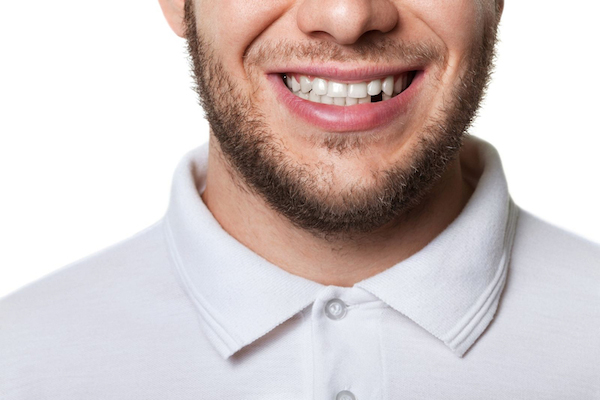
Having an active lifestyle is definitely a good thing. Being physically active, however, can sometimes lead to missing a tooth or set of teeth. Luckily for you, it’s possible to complete your smile again. One solution recommended by dentists is a dental implant.
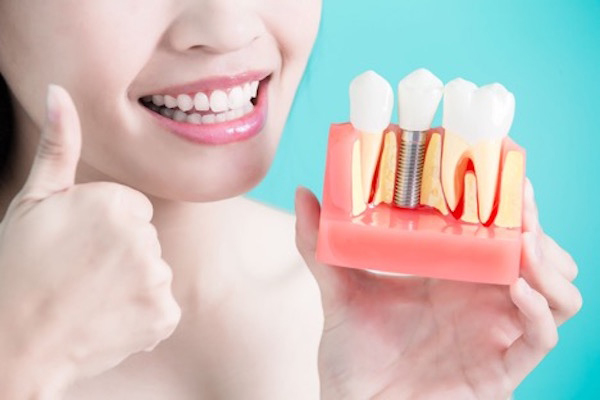
Top-quality, affordable dental implants can be an effective and permanent way to replace missing teeth and restore your confidence. As is the case with natural teeth, efforts will need to be made to ensure that implants keep doing their job for many years. In fact, well-maintained implants can last for 10-15 years or more.
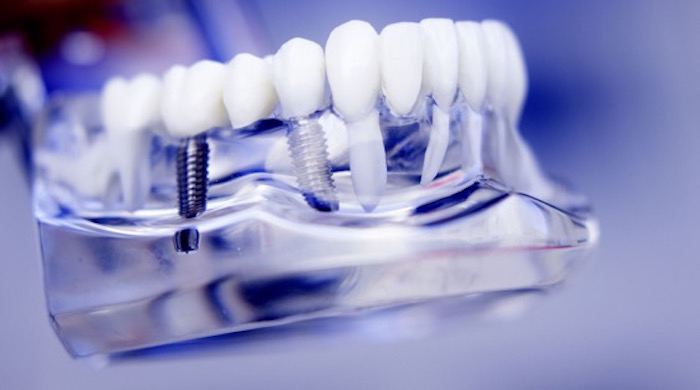
Dental implants are increasing in popularity for their ability to restore lost teeth and improve patient smiles. Both men and women can enhance their appearance with implants that are correctly installed by experienced dental professionals like those with ProDentures.
When you want to improve your oral health and the look of your teeth, consider these benefits that come with dental implants.
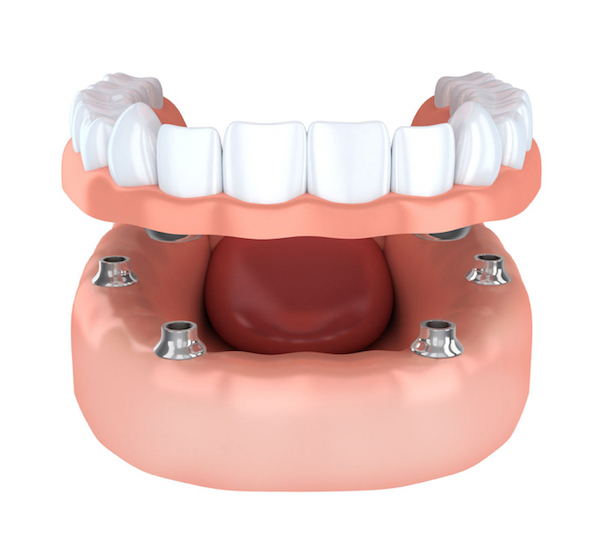
Dental implants are widely known to be suitable replacement for one or more lost teeth. However, do you know that they serve other functions as well? Under the right circumstances, a qualified Houston dentist can use dental implants to secure full or partial dentures in place. Placing implants to stabilize dentures allows the wearer to achieve stronger chewing power and do away with many of the discomforts and inconveniences of loose or unanchored dentures.
